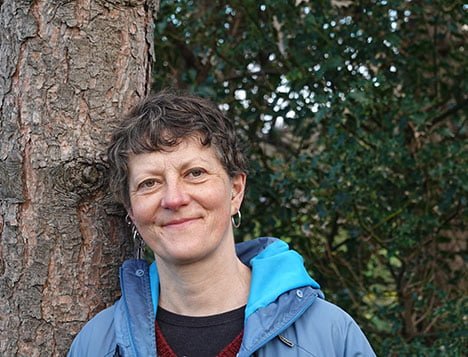Counselling


Counselling
What is Counselling?
Counselling sessions offer a secure, confidential space for you to open up about what’s troubling you. What you need from those 50 minutes can change over time and is different for different people. You get the opportunity to talk to someone who’s not involved in the issues that you’re finding difficult, which has (at least) two benefits:
- You’ll probably feel more able to be honest about what you think and feel, because you don’t need to worry how I’ll take it, which can be a great relief
- Because I’m removed from your situation, I can view it objectively, so may have insights that you or others close to you don’t, which can help you see things differently
As I hear your story I’ll be able to help you to understand how your experiences have influenced your current behaviours, thoughts and feelings. You might think ‘there’s nothing wrong with my life’ but, I guarantee you, there will have been events in your life that will have had an impact on you. Gaining more understanding of yourself really shifts your perspective from feeling there’s something wrong with you, which not only helps you feel better, but can also create space to allow yourself to trust your instincts to find your own way forward – ‘promoting change’ as we say in the therapy world.
You might find it helpful to read my blog Does counselling REALLY change lives?

You and me
We can work in a ‘traditional’ counselling format indoors, have sessions outside, or see each other online. However we decide to proceed, it’s important that you think you’ll be able to feel comfortable enough in a relationship with me to begin to talk about what’s bothering you. It might be that our personalities don’t fit, and there’s nothing wrong with that.
The relationship between client and therapist is different each time, but it’s quite likely that, once you trust me, you’ll repeat your default patterns of relating to people, in the way you relate to me. Talking about this can help us both to better understand and explore your difficulties. I don’t give advice, as such, but I may offer tips or ways for you to think about how you react in certain situations, and to help you to develop coping strategies.
Sessions are normally 50 minutes long, but we can negotiate shorter or longer sessions if that seems to work better. You can end the counselling relationship at any time, but it’s usually helpful if we discuss the ending first – especially if we’ve been working together for some time.

Why online therapy sessions?
Online therapy can be a good option if you find it difficult to keep a regular appointment, if you travel a lot, or if you have a mobility problem or a disability which would make it difficult for you to get to counselling in person. If you haven’t tried therapy before, and are comfortable using a computer, text-based counselling might be an easier first step – where you don’t feel so self-conscious – if you find the idea of sitting in front of someone you don’t know a bit scary. For example, if you’re coping with depression or anxiety, the thought of interacting with people can feel overwhelming.
If you don’t like expressing yourself through text or writing, then text-based counselling probably isn’t for you, but you might like to try web-cam counselling or phone counselling, which also use computer software for us to connect.
Web-cam counselling can seem very like face to face counselling – although because of camera positions it can sometimes seem as if we’re not looking at each other, so bear in mind this can, at first, be a distraction. You could have a look at my video on the About me page to get a feel for how it might be to meet with me through a screen.
Online counselling differs from in-person face to face counselling in that we don’t have the same clues from body language, tone of voice, facial expressions, etc – so I usually remind clients of this when we start working together, and will ask you to tell me if you think I’ve misunderstood you.
If you are struggling with acute or chronic mental illness then the online counselling environment may not be appropriate; you are more likely to get the level of contact and support you need through face to face therapy.
I offer online therapy in four different ways: email, live instant messaging (IM), web-cam (video) or telephone. With email therapy, we’ll agree when you’ll email me; I will respond to emails within 48 hours (72 hours over a weekend). With instant messaging, webcam and telephone sessions, appointments last for 50 minutes.
ACTO (Association for Counselling and Therapy Online) has recommended competencies for practitioners working online. You can read these here .

Email counselling
Email can allow you to be more reflective about the exchanges we have and you’ll have flexibility around time to compose what you want to say. On the other hand, you won’t receive my reply for 48 hours, which can sometimes provoke anxiety – as if your message has gone into a ‘black hole’. You’ll need to open a secure email account to ensure our exchanges are as safe as possible, and I’ll provide details of this.
Instant messaging therapy
Instant Messaging (IM) is similar to text-messaging or WhatsApp. It’s more like a conversation because it happens in real time. I use secure software developed for the medical industry.
Webcam / video therapy
Webcam sessions take place on Zoom, and we can see each other’s faces. It’s not quite the same as being in a room together because we can’t see the whole of each other, but we can see facial expressions, and like ‘traditional’ counselling we are speaking to each other rather than writing.
Telephone counselling
Just what it sounds like. We normally use software to make calls online, which you can use from a PC, tablet or mobile. If you prefer to have sessions via ‘normal’ phone that’s fine, but in that case you’ll need to make the call to me and incur any cost of this (depending on your own phone contract).

Starting therapy – the practical stuff
Once you get in touch, I’ll send you a brief form, to find out why you’ve decided to seek counselling. If you prefer, we can have a chat over the phone for me to learn more about you (and you about me).
If we decide to proceed, we’ll agree how or where to work together, and when appointments will be. We’ll then complete an agreement form before our first session or email, which asks for some contact information and confirms administrative and practical details of the relationship. You can of course take as much time as you need to read over the forms and ask any questions.
You can read more about the practicalities in my blog What happens in therapy.
Fees
Find out about my pricing here.

Book a session
I have sessions available from next week, so please get in touch to find out more.
Newsletter
Get hints and tips to help with your self care, and be the first to know when I’ve got a new blog out. I won’t spam you – newsletters come out once a month or less, and you can unsubscribe at any time.
